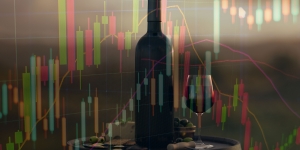Brand Directory: Collectibles
A
- A & J Antique Mall
- A Cute Shop
- A Glittered Tree
- A Piece Of Heaven
- A Shop Called Quest
- A to Z Mart
- A Wave Blue World
- A&R Collectibles
- A-1 Comics
- A-Mark Precious Metals
- A. F. Limoges
- A. G. & S. Gillis
- A.G. Collectibles
- A.G. Tannenbaum Radio
- A.Pash & Sons
- A24 Shop
- AB Designs, Co.
- AB Philea
- Abbott & Costello Collectibles
- Abby's Apothecary Co.
- ABC Shop
- Able Ground
- Acme Archives Direct
- Acoustic Sounds
- AD Antiques
- AdClassix
- AdsPast.com
- Aero Force One
- Aeroemblem
- Aethereal
- AFDCS
- Agathe Singer
- Age of Comics
- Agustin Unlimited
- Ahegao Shop
- Ahimsa Vibe Crystals
- AICO
- Air-Tite Holders
- Air-tites.com
- AJ Sports Collectables
- Akira Studios
- Akron Aviators
- Alarm Clock Doc
- Alaska Auction Co
- Alaska Robotics Gallery
- Alaska Scrimshaw
- Alaska tokens
- Albanese Rare Coins
- Albisa Candles
- Alchemade
- Alexander Taron
- Aley Wild
- Algomond
- Alhambra Coin Center
- AlienVacation
- Alif Laila Glazed Pottery
- Alisha Merrick Art
- All Antique Glass
- All C's Collectibles
- All Day Records
- All Japanese Anime
- All Nations Stamp and Coin
- All Things Collectible
- All Things Vintage
- AllAboutCosplays
- Allen Lopez
- Allen's Collectibles and Gifts
- Alliance Gold and Silver Exchange
- AllPokeTCG
- AllstamP.net
- Allstarco
- Alpheus Store
- Alt.xyz
- Alter Ego Comics
- Alter Reality Games
- Alum and Ink
- Always Collectors Corner
- Ama Nuur
- Amalgam Comics & Coffeehouse
- Amazing Comics & Cards
- Amazing Music Box & Gifts Co
- American Bullion & Coin
- American Coin Treasures
- American Collectibles
- American Gold Exchange
- American Gumball Machine
- American Rare Coin and Collectibles
- American Rarities
- Americana Memories
- AmeriGold
- Amethyst Goddess
- Amos Advantage
- Amrahlynn's Collectibles & Collectible Repair
- Amy Carroll Printshop
- Amy Earls
- Ana Benaroya
- ANACS
- Ananta Stones
- Anavian Gallery
- AnbCollectibles
- Ancient Antiques
- Ancient Artifacts & Treasures
- Ancient Ivories Studios
- Ancient Touch
- Andre Burgos
- Andrea Kang
- Andreas Wiemer Historical Autographs
- Andrew Muir
- AndVinyl Records
- Andy's Village Trees
- Angel Lady Crystals
- Angelic Roots
- Angelo's CDs & More
- Anglo Saxon Coins
- Animation Legends
- AnimationShops.com
- Anime Anything
- Anime Imports
- Anime Shelf
- Anime Tee
- AnimeAtlas
- AnimeCentrall
- AnimeGo Store
- ANIMENEWS.IO
- Ann Bridges
- Anna Michielan
- Annette Herrmann
- Anticuria
- Antiquanova
- Antique Clock Repair & Restoration
- Antique Coins for sale
- Antique Cupboard
- Antique Digger
- Antique Emporium
- Antique Label Company
- Antique Mall Y'All
- Antique Mystique
- Antique Photo Store
- Antique Quilts Marie Miller
- Antique Radio Knobs
- Antique Slot Machines
- Antique Stamps Buyers
- Antique Trove
- Antiques & Beyond
- Antiques at Loop
- Antiques at Railway Commons
- Antiques of the Sea
- Antiquities
- Antiquities Warehouse
- Apfelbaum
- Aphrodite Ancient Art
- Apricity Ceramics
- Aquarium Vinyl
- Arader Galleries
- Arcane Comics
- Arcane Vault
- ARCH Art Supplies
- Archie Comics
- Architectural Accents
- Archonia.US
- Area 51 Miners
- Arena Club
- Arenaballondor
- Arizona Coin & Collectibles
- ARK Crystal
- Arlington Coin
- Arlington Resale
- Armik's
- Armory Replicas
- Army of Tennessee Relics
- Arpin Philately
- Art 4 Now
- Art by Madeleine Paris
- Art Group Ink
- Art Junkyz
- Art Plates
- Art Source International
- Art Wise Online
- ArtAncient
- Arte Antiques
- Artelino
- Artemission
- Artifacts Guide
- Artisan Reiki Center
- ArtnIndia
- Artpool Gallery
- Artrepublic
- Arts and Crafts Tile
- ARTSABERS
- Artspace Warehouse
- Artsper
- Artstar
- Artstudio35
- Artwork by Eelus
- Ascension By Ruby
- Ascension Orgonites
- Ash Avenue Comics
- Ashphill Gift Emporium
- Asian Art Galleries
- Aspen Store
- Astoria Coins and Collectibles Corp
- Astro Gallery
- Astro West
- Atchison Home
- Athens Pins and Spins
- Atlanta Cutlery
- Atlantis Games & Comics
- Atlasdogs Cards
- Atomic Comics
- Atomic Pixies
- AtSKnSK
- Attack On Titan Shop
- Attico
- Atticpaper.com
- Audubon Prints & Books
- Aunt Bee's House
- Austin Books & Comics
- Austin City Limits
- Austin Rare Coins & Bullion
- Authentic Models
- Authentic Street Signs
- Autograph Authentic
- Autograph Pros
- Autograph World
- Autographed Collectables
- AutographSale
- AutographsForSale
- AV8R Stuff
- Ava Nile
- Avant Arte
- Avenue 550
- Aviator Art
- Avid & Iconic
- Avignon of France .com
- Awake & Indigo
- Away Mission
- Axe Heaven
- Azibaza
B
- B & B Collectibles
- B-Town Sports
- Baba Gems Online
- BABYMETAL
- Back In Time Warehouse
- Back to the Future
- BackGroove
- Backpack Buddha
- BADA
- Badger Breaks
- Badlands Sports Cards
- Baeond
- Baidun
- Bakayeru
- Baker Breaks
- Ball of Fame
- Ball.com
- Bamastuff
- Banana Dance
- Banknote World
- Bankston's Comics
- BANPRESTO
- Barber Shop Window
- Barry Lawrence Ruderman
- Baseball Cards
- Batcave Comics & Toys
- Battle Shopper
- Battleground Antiques
- Bazaar
- BBC Shop
- Bcntku art studio
- Beacon Hill
- Beano
- Bear Family Records
- Bear Valley Sculptures
- Bearfootin.com
- Beckett
- Bedo's Collectibles
- Bedol
- Bedrock City Comic
- Beer Glass Hopper
- Beer Savage
- Beer Steins and Mugs
- Beerables
- Bees Team Store
- Bell's Aviation
- Belle Rose Farm
- Belleek
- Bellevue Rare Coins
- Belmacz
- Benzilla
- Berning Scales
- Berserk Shop
- Best Doxie Stuff
- BestCoin.Com
- Bestcrystals
- BestPysanky
- Bestsku
- BeTovi & Co
- Better Display Cases
- Better Living With Hypnosis
- Better Things Ahead
- Bettini Deruta
- Betty Boop
- Bey Berk International
- BGASC
- Bible Truth Music
- Big Brother Comics
- Big Daddy Collectibles
- Big Fudge
- Big Moods
- Big Planet Comics
- Big Pop Shop
- BIG! autographs.com
- Bijou Betties
- Bill Bam's Collectibles
- Bill Mack Gallery
- Billy Galaxy
- Birchcroft China
- Bishop & Daughter Antiques
- Bits of vintage
- Bizarro World
- BJCrystalgifts
- Black Clover Merchandise
- Black Eyed Peas
- Black Financial Literacy Store
- Black Sands
- Black Sun Comics
- Blackman Cruz
- Blair Russell
- Blake Street Glass
- Blazing Cards
- Bleacher Seats Collectibles
- Bleecker Trading
- Bleep
- Blindbox Comics
- Bliss Crystals
- Blizzard Gear
- BLK MKT VINTAGE
- Blockhead
- blood and thunder
- Blue and White
- Blue Gray Relics
- Blue Moon Estate Sales
- Blue Ridge Dinnerware Pottery
- BNHA Merchandise
- Bo Bridges Gallery
- Bob Paul Rare Coins
- Bob's Antique Radios
- Boba Rally
- Bobby" Pietrafeso
- Boca Raton FC
- Bodega Cards
- Boeing Store
- Bold Coast Burns
- Bombusbee
- Bonafide Icon
- Bone Collector
- Bonjour Supermarket
- Bonnie's Limoges
- Bonnin Ashley Antiques
- BOOM! Studios
- BoondockStore.com
- Boone Trading
- Booneshares
- Boss Vintage Shop
- Boston Rare Maps
- Bottom of the Cup
- Bowlifi
- Brain Vessel
- Brave New World Comics
- Break4Sports & Collectibles
- Breakout Cards
- Breshnyda
- Bret Leifer Numismatics
- Brettuns Village
- Breweriana Zone
- Brewster's Antiques
- Brian's Toys
- Bric-a-Brac Records & Collectibles
- Brick Republic
- Bridge Nine Records
- Bridgeman Images
- Brigandi Coins and Collectibles
- Brin de Folie
- Britannia
- British Army Badges
- British Coin Company
- Britt Bolton Jewelry
- Broadway Wiz
- Brocante, Ma Jolie
- Bronze.net
- Bruce Holwerda
- Bruja Vibes
- BTS Merch Shop
- Bubble Sharks
- Buddha Power
- Budget Accutron
- Bulletproof Comics
- Bullion Direct
- Bullion Exchanges
- Bullion Shark
- BullionMax
- Bullseye Plastics
- Bungalow Bill
- Burbank Sportscards
- BURN Store
- Button Fox
- BuyMoldavite
- By Annemarie Dolls
- ByFinn
- Bygone Reflections
C
- C & C Coin And Stamp
- C and G Coins
- c/o Darren Ballard
- Caddo Trading co
- Calabrese
- Calgary Coin
- California Sports Cards
- Call It New Call It Antique
- Call of Duty League Shop
- Camilla d'Errico
- Canadian Coin and Currency
- CancerZodiacCrystals
- Canonbury Antiques
- Cape & Cowl Comics
- Capital Plastics
- Captain Zoom
- Captains Comics and Toys
- Caravan to Midnight Online Store
- Card Cavern Trading Cards
- Cardboard Cutouts
- CardCollector2
- CardCow
- CARDIACS Sports & Memorabilia
- Cardmarket
- Cards and Comics Central
- Cardsmiths Breaks
- CardsPlug
- CardTrader
- Carpe Diem Comics
- Cartoon Solutions
- Casa Shop
- Castaways Vintage to Modern
- CaveGeek
- Caveman Collections
- CBC Apparel and Collectibles
- CCB Aviation
- CCGCastle
- CD Cellar
- Cedric Dupont Antiques
- Celebrity Cutouts
- Celestial Soul Vibes
- Celestial Treasures
- Cellar Art
- Century Coins and Bullion
- Century Images
- Cerebro
- Certified Coin Exchange
- CGB
- Challenge Coin
- Challengers Comics + Conversation
- Challenges Games and Comics
- Champion Stamp
- Chancery Lane
- Changing Thymes
- ChangThai Design
- Channelfireball
- Charles Michael Gallery
- Cheap Slabs
- Check Out My Collectibles
- ChemArt
- Cherry Restorations
- Cherryland Auctions
- Chesapeake Ceramics
- Chesterton Manor
- Chewigem USA
- Chicago Comics
- Chicagoland Sports Cards
- Chicks and Wicks Candles, LLC
- Children of the Inner Light
- Chisai Japan
- Chisholm Poster
- Chris Rudd
- Chuck Styles
- Church and Maple
- Cigar Box Labels
- Cindy Raleigh Fine Art
- CineMasterpieces.com
- Cinereplicas
- CIT Coin Invest AG
- City Coins
- City-Souvenirs
- Civil War Autographs
- Civil War Badges
- Civil War Tokens
- Claire Rosen
- Clampett Studio Collections
- Clark Smith
- Clark's Cookie Jars
- Class Comics
- Classic Pins
- Classic Tin Signs
- Classicdesign.nl
- Claudia Pearson
- Clear Stands
- Cliburn
- Cliff Guy
- CloseoutZone
- CM Antiques
- CMY Cubes
- CNG
- Cobalt Comics & Collectibles
- Cobweb Designs
- Coca-Cola Store
- Coco’s Cody's Collectibles and More
- Cohen Antiques
- Coin Displays
- Coin Supply Express
- Coinable.com
- Coincraft
- Coinforce
- CoinMapsUSA.com
- Coinmathunting.com
- Coins and Currency
- Coins For Anything
- Coins of America
- Coins of Nakamoto
- COINSPlus
- Cointown
- CoJo Sport Collectables
- Cold Storage Coins
- Colfax Collectibles
- COLLARxELBOW
- Collecta
- Collectable Bar Mirrors
- Collectable.biz
- Collectablesmall.com
- Collectible Badges
- Collectible Legends
- Collectible Sign and Clock
- Collectible Stocks and Bonds
- Collectibles Shop
- CollectibleShopping.com
- CollectibleXchange
- Collecting Hollywood Autographs
- Collectomania
- Collectons
- Collector Cup
- Collector Legion
- Collector's Outpost
- Collector's Paradise
- Collector's Supply House
- Collector's World
- Collectors Anime
- Collectors Corner
- Collectors Crossroads
- CollectTrumpCards
- Colonial Acres Coins
- Columbia Hobby
- Colvin Dolls
- Comic Bento
- Comic Book Hideout
- Comic Book World
- Comic Flea Market
- Comic Haven
- Comic Hero University
- Comic Mix
- Comic Sandwiches
- Comickaze Comics
- Comics & Coffee
- Comics Factory
- Comics Kingdom
- Comics N' More
- Comics-N-Stuff
- ComicXposure
- Comixology
- ComixTribe
- Community Heritage Maps
- Concrete + Crystals
- Connie's Doll Studio
- Contagion Media
- Contemporary Posters
- Cooledtured
- Cooter's Place
- Copper Lamp
- Corbell Silver
- CoreTCG
- Corn Coast Comics
- Corner House Collections
- Cosmic Cuts
- Cosmic Monkey Comics
- Costumes and Collectibles
- Cottage Chicks
- Cottage Garden
- Cottonwood Market
- CourtDanyelle
- Crackin Wax
- Craft-Tex
- Crafty Owl
- CrateArt
- Creamiicandy
- Creations and Collections
- Creator Ink
- Creepy Kawaii
- Crisp Collectibles
- Crosskeys Antiques
- Crowded Teeth
- Crunchyroll Store
- Crush Comics
- Crusin The Past
- Cryptochips
- cryptograffiti
- Cryptozoic Entertainment
- Crystal Age
- Crystal and Craft
- Crystal Caseworks
- Crystal Corner
- Crystal Curtis
- Crystal Dreams
- Crystal Earth Rock Shop
- Crystal Exchange America
- Crystal Farmacy
- Crystal Gemstone Shop
- Crystal Happenings
- Crystal Healing Shop
- Crystal House
- Crystal Hunter
- Crystal Junkie
- Crystal Karma By Trina
- Crystal Life
- Crystal Light and Sound
- Crystal Lilly Designs
- Crystal Moon
- Crystal Realm
- Crystal Therapy Co
- Crystal Vaults
- Crystal Wellness Company
- Crystalarium
- Crystalcompany.com
- CrystalHealing4Women
- Crystalized By Naomi
- Crysties Gifts
- CT Cinderellas & Poster Stamp
- CT Crystal Bar
- CTR Ring Sales
- CUANTIQUE
- Curious Collections Vinyl Records & More
- Custom Wood Carving
- CWFP
- Cyber Depot
- Cyberattic
- CyberDeck
- CyberHeroes Comics
- Cynthia's Attic Direct
D
- D&D Collectibles
- D. King Gallery
- D20 Collective
- Dads Vintage Ads
- Daguerreotype.nl
- Dakixart
- Dales Collectibles
- Dan Plate Trading
- Danbury Mint
- Danielle DeMartini
- DaNisha
- Danny Trejo
- DannyQuest Designs
- DanTheStampMan.Com
- Dark Country
- Dark Delicacies
- Dark Horse Comics
- Dark Ink
- Dark Moon Crystals
- Dave & Adam's
- David Brower Antiques
- David Hall Rare Coins
- David K. Parks Military Antiques
- David Richard Gallery
- Dazzlers
- DC Collectibles
- DDTStore
- De Carlini
- De Korner
- Dean Russo Art
- Dean's Cards
- DecoGallery
- Dēdstäwk Collectibles
- Deeply Dapper
- Degree Miniatures
- Del-Rays
- Delta Imex
- Demdaco
- Demon Slayer Merch
- Denham
- Dennis R. Abel Stamps for Collectors
- Denuo Novo
- Denver Crystals and Gems
- Denzil Grant
- Department 56
- Der Freiwillige Military Antiques
- Deschutes Brewery
- Desert Valley Crystals
- Design Archives
- Detroit Diecast
- Deutscher and Hackett
- Devonia Antiques
- Diabolical Collectibles & Gaming
- Diamond Art Club
- Diamond Cards
- Diamond Fire Rhinestnes
- Dibbs
- Dice Penguin Shop
- Diecast Depot
- Diesel Sweeties
- Digital Heroes
- Digital Trading Cards
- Dimensional Designs
- Dirty Old Coins
- Discount Lapel Pin Store
- Dish 'n Chips
- Disney
- Disney Store
- Dispela Antique
- Display Case Art
- Divine's Furniture
- Divinely Rooted
- DJ's Sportscards
- DKNG Studios
- Dmitry Markov Coins & Medals
- Doc's Records & Vintage
- Dock 410
- Docking Bay 94
- Doctor Who Store
- Doctor Who: Worlds Apart
- Dodo Posters
- Doe & Hope
- Dolls and Lace
- Dolma
- Domimex Antiques & Rugs
- Don O'Neill Watercolor
- Don's Vintage Audio
- Donald A. Heald
- Donato Arts
- dondiegotrading
- Dop Antiques
- Dore Douty
- Down In The Valley
- Dpad Retro Gaming
- Dr. Freecloud's Last Record Store Standing
- Dr. Music Records
- Draffin Bears
- Dragon Cards
- Dragon Folk Studios
- Dragon Gems LV
- Dragon's Lair Comics and Fantasy
- DragonVine
- Drake Official Store
- Drawn To Comics
- Dreadnought Comics
- Dreamland Comics
- Dreamy Life Records
- DriveThruCards
- DriveThruComics
- Drowned World Records
- Drucker Antiques
- Drunken Unicorn Apothecary
- Dry Daddy
- dszfoundation
- DTA Collectibles
- Dualtone Store
- Duirwaigh Studios
- Duke's Card Shop
- Duncanville Bookstore
- Dusty Groove
E
- Eagle Eye Rare Coins
- Eagle Peak Store
- Earth To Soul
- Earthly Secrets
- Earths Elements
- East Coast Card Collector
- Eastern Classics Berkeley
- Eastside Trains
- Echo Art Studio
- Eclectic Creations
- Ecoins
- ecstase
- Edelweiss Post
- Edgar L. Owen
- Edward J. Waddell
- Edward N. Bomsey Autographs
- EFG Store
- EggManArt
- Eknight Media
- Electric Fetus
- Element Fire Glass
- Elements
- Elemintal
- Elestial Gems Company
- Elite Coinage
- Ellsey Bellsey
- Elphicks Shop
- Emerald Knights
- Emilitary Coins
- Emily Hart Dolls
- Emily the Strange
- Empire Gifts and Antiques
- Empire Philatelists
- Empress Energy Healing
- Enamel Pin Factory
- EnamelPins
- Encore Editions
- End of an Ear
- Endless World
- Energy Muse
- English Georgian America
- Enkitsu
- Entertainment Earth
- Ephemera Obscura Collection
- Epic Frequency
- Eric Wrobbel
- Erin Bassett Artistry
- Erin Donahue Tice
- Erin Vaughan Illustration
- Ernie November
- Eron Johnson Antiques
- eSale
- Essential Sequential
- Estate Silver
- Estudi Filatèlic
- Ether Legends
- Evangelion Merch
- Evasive Studio
- Everybody's Records
- Everything Collectible
- Excelsior-Collectibles
- Exonumia
- Exotic India
- Experimedia
- Explosm.net
- ExquisiteCrystals.com
- Extreme-Sets
- Eyes of the World Imports
- Eyesore Merch
- Ezequiels Healing Tools
F
- feemaleartist
- FAB TCG Cards
- Fabulous Flippin' Treasures Vintage Mall
- FacetoFacegames.com
- Faeries by Susie
- Fairys.com
- FakeMillions.com
- Falcon Coin's
- Falcon-Wood
- Fametek
- Fan Frenzy Gifts
- FanCave Rugs
- Fancy
- Fandom Comic Shop
- Fandomaniax Store
- FandomVerse
- Fangamer
- Fanhome US
- Fantasy Books Inc.
- Fantasy Coin
- Fantasyard
- Fanz Collectibles
- Far Arden Essentials
- Faro's Lounge
- Faru
- Favorfavor
- FBorFW
- Fee & Me
- FeeLIT Records
- Fiction Edge
- Fiddlesticks
- Fidelity Restoration Service
- Fierce Ferrets
- Fifijoy
- FiGPiN
- Figurama Collectors
- Figurise
- Fill-Er-Up
- Film Cell Bookmark
- Finch and Sparrow Games
- Find Your Stamps Value
- Finders Pickers Paper
- Fine Antique Prints
- Fine Art America
- Fine Art by Ane
- Fine Art by Sarah Andreas
- Fine Art Tapestries
- Fine Rare Prints
- Finedags.com
- FinerWorks
- Finest Website
- Fingerprints Music
- Firebourne Comics
- Firebox
- Firma Stella
- First Day Covers Online
- First Run Features
- Fknprints
- Flags Forever
- Fleek Gallery
- Fleur de Coin
- Floating World Comics
- Flooded Jewelers
- Floor 13
- Flora's Gem Shop
- Flourish Fine Writing
- Flower Knows
- Fly Vintage & Vinyl
- Foco
- Fontanini
- FootballCardsDirect.com
- For Fans By Fans
- Forbidden Planet NYC
- Forestwood Antique Mall
- Forever Young Records
- Forum Ancient Coins
- Fos Scale Models
- FossilEra
- FoxRaven Designs
- Foxtail Gallery
- Fran Rodriguez
- Franklin Mint
- Fred Weinberg & Co.
- Freedom Anime Kingdom
- Freedom Gifts USA
- Freeforms
- Fremont Vintage Mall
- French Accents Antiques
- French Bleu Vintage
- Fresno Coin Gallery
- Friendly Box Breaks
- Front Row Sports Cards
- Fruits Basket Shop
- FUBA Coins
- Fun Collections
- FunkoBros
- Funshop-TikTok
- Furnish Studio + Salvage
- FX Networks
- FYLP Restorations
G
- G. B. Tate & Sons
- GAC Superstore
- Gacha World
- Gainesville Coins
- Galactic Stone and Ironworks
- Galerie 123
- Galerie de Vries
- Gallery Direct
- Game Citadel
- Gameday Ironworks
- Gameday Sports & Memorabilia
- Gameday-Collectibles
- Gameroom Show
- Ganges India
- Garfield & Friends
- Gargantuaphotos.com
- Garwood & Voigt
- Gasoline Alley Antique
- Gather A Vintage Market
- Gaukler Medieval Wares
- Gear Anime
- Gearbox Records
- Geek Oasis
- Geektopia by KAC
- Gem Collector
- Gem Rock Auctions
- Gemini Collectibles
- Gemini Comic Supply
- Gemma Raffo
- Gemstone Yoni Eggs
- Gene Bahr's
- General Bank Supply
- Genshin Impact Store
- Genshin Star
- Genshin.Shop
- GenshinBox
- GeoCentral
- Geoffrey's Comics
- Geographicus Rare Antique Maps
- GeoRarities
- Georg Jensen
- George Baxter Prints
- George Glazer Gallery
- George Manz Coins
- German Coins for sale
- Gesner Estate Jewelry
- Gesundheit Healing
- Get Better Records
- Get Kawaii
- Get Physical Music
- Getty Museum
- GhettoManga
- Giamer Antiques and Collectibles
- GIANT ART
- Giant Sports Cards
- Giant Teddy
- GiftBay Creations
- Giles Norman
- Gina Bellous Dolls
- Girl Genius
- GITANO GEMS
- Glacce
- Glass Domes
- Glass Menagerie Antiques & Collectibles
- Glass Paperweights
- Glitter Moon
- Global Golf Events
- Global Village Glass Studio
- Glory Bee
- GMRGold
- Go Autographs
- Goaljerseys
- GoAntiques
- GoCollect
- GoComics
- Going Underground Records
- Gold Gate Capital
- Gold Label
- Gold Rush Vinyl
- Gold Trust Store
- Gold'n Coins & Jewelry
- Goldberg Coins
- GoldClub Direct
- Goldcoast Coin Exchange
- GoldDealer.com
- Golden Age Vintage
- Golden Antique Radio Service
- Golden Apple Comics
- Golden Eagle Coins
- Golden State Mint
- Golden Valley Minnesota Stamp
- Goldin Auctions
- Goldline
- Goldmasters USA
- Goldmine Magazine
- Goldsboro Museum
- Goliath Coins
- Good Fucking Design Advice
- Good Intention Crystals
- Good Juu Juu
- Goods on Orange
- GoodWood DC
- Gormos
- Gotham City Comics and Collectibles
- Gotham City Limit
- Götzfried Antique Maps
- GovMint
- GR Tiso
- Grace Records
- Grade City Comics
- GradedGuard
- Graham Crackers Comics
- Gramophones
- GrandmasGiftware.com
- Grave Dirt Clothing
- Great Lakes Antique Phonographs
- Great Stories
- GreatCollections
- Green Flag Stop
- Grille Cloth
- Grindin' Golf Co.
- Ground Gaia
- Gryphon's Nest
- GSC
- Guest & Gray
- Guinness Webstore
- GV Sports
- GVartwork
- GX Collectibles
- Gypsy Bazaar
- Gypsy Gems & Jewelry
H
- Hagen-Renaker
- Hake's Americana & Collectibles
- Hall of Wonders
- Hallmark Gifts
- Halloweenmovies
- HALOS & ARROWS
- Hammersite
- Hana Art Studios
- Hancock & Harwell
- Handworks
- Happie Daze
- Happy Soul
- HappyWall
- Hard Rock Stage Productions
- Harlan J. Berk
- Harmonest
- Harry Poster
- HarryPotterShop.com
- Haunted Studios
- Haus Gypsy
- Haviland Online
- Hawaiian Collectible Menehune Dolls
- HD Rauch
- Headline Records
- Heads or Tails
- Heads or Tales Coins & Collectibles
- Healing Crystal
- Healing Crystals
- Heart of Tibet & Sky Door
- Hearthstone
- Heartland Rare Coins & Collectibles
- HeavenlySwords
- Hedgehogs Corner
- Heekin Pewter
- Heirlooms Antique Mall
- Helios Gallery Antiquities
- Hello Kitty Camp
- Helmut Weitze
- Hemal Crystal
- Henry Deeks
- Herakles
- Heritage Fine Art
- Hero Bullion
- Heroes & Fantasies
- Hessen Antique
- Hi-Voltage Records
- High Energy Vintage
- High Fidelity L.A.
- High Street
- Hill House Wares
- Hillary Miles
- Himalayan Antiques
- Himalayan Secrets
- HipComic
- HipPostcard
- Historama
- Historic Impressions
- Historic Map Works
- Historic Sales
- Historic Silver Coins
- Historic Timekeepers
- Historical Sculptures
- History Company
- History In Coins
- History In Ink
- HistoryForSale
- Hit Kings Sports Cards
- Hixenbaugh Ancient Art
- HK Steel Sculptures
- HLRC
- Hoadley Gallery
- Hobby-supplies.com
- Hodges Trading Cards
- Hogan's Beach Shop
- Hollins Certificate
- Hollywood Collectibles
- Hollywood Desires
- Hollywood Heroes
- Hollywood Memorabilia
- Home of Heroes & Collectibles
- Honey Badger of Money
- Hops Scrimshaw
- Horimiya Merch Store
- HorrorMerch
- Horse Soldier
- HotSauceGames.com
- House of Caron
- House of Records
- House of Waxx
- Housewerks
- Houston on Canvas
- Hovave Art
- Howard Nowes Ancient Art
- HPrints
- HRD 1715
- HTFR
- Hub Comics
- Huber & Associates
- Hudson Valley Numismatics
- Hugo van der Molen
- Hulet Glass
- Hum3D
- Hummels at a Discount
- Hunter x Hunter Store
- Hybrid Records
- Hyper Finch
- Hypreverie
I
- I Desire Vintage Posters
- I Dig Crystals
- I Dig It All Sports
- I Like Comics
- I Love Characters
- I Manifest Serendipity
- I Photo Central
- I.Franks
- iam8bit
- ICG Coin
- Icon Coins
- Iconographs
- Ideal Bookshelf
- Idol Store
- Idrawgirls.com
- Ignis Glass
- iHobb.com
- IJ-Anime
- IKENGA
- Illuminarium Convergence
- Illusive Comics and Games
- Illustrated Monthly
- Ilus Art
- Image Comics
- Impulse Creations Comics & Collectibles
- Incantata Vita
- Independent Records
- Indigo Cruz Creations
- Indigo Temple
- Infinity Flux
- InnerSleeve
- InnerTalk-Store
- InnerVision Crystals
- InStitches
- Insulin + Coffee
- Intense Records
- International Military Antique
- International Poster Gallery
- International Wholesale Gifts & Collectibles
- Intertique
- iPan4Gold
- iPrintfromHome
- IRODORI Comics
- Iron Circus Comics
- Isaac and Ede
- ISN Modern Coins
- ITM Trading
- ItsYourAirplane.com
- Ivy Manor Antiques
J
- J Display Case
- J&J Coins
- J&J Collectibles
- J&M Coin & Jewellery
- J-List
- J.H. Tee Antiques
- J.J. Teaparty
- Jack Hunt Gold and Silver
- Jadetime Enterprises
- JAG Sports Marketing
- JamaicaArt
- James & Reid Home
- James Hance
- Jamestown Revival
- Jamestown Stamp Company
- Jamrock Reggae Cruise
- Janet Gale Hammer
- Janet Keen
- JapanBargain
- JapanHaul
- Jasper In June
- Jaspys
- JaxKelly
- Jay and Silent Bob's
- Jcardiecast
- JD Newitt
- JDI Store
- Jean Marc Fray
- Jeff Price Art Glass
- Jencek Historical Enterprise
- Jennifer Allevato Fine Art
- Jennifer Irving
- Jenny Pennywood
- Jerman Art Glass
- Jerry's Records
- Jerry's Rock and Gem
- Jersey Champs
- Jess Kay Designs
- Jetty Home
- Jim Mehrer
- Jim Rissling's Wildlife Carvings
- JJ Watch Repair
- JLynnPaperCo
- JMK Displays
- JMR Roman Coins and Artifacts
- Joan Wells
- Joe Geraci
- Joe Henley
- Joel Oppenheimer Gallery
- Joel's Antiques & Reclaimed Decor
- Johari & Lou Artisan Soul Stones
- John B. Hamrick & Co.
- John Pitre Art
- Joie de Vie Antiques
- Jonathan Park
- Josey Records
- JoshParkyArt
- JP Slot Emporium
- JP's Corner
- JP's Horror
- JR Nation
- JS Pottery
- Jschlatt Merchandise
- Judicial Watch
- Judnick Postcards
- Julienne's
- Juniper Stones
- Junket: Tossed & Found
- Juried OnLine Arts Festival
- Just Art Pottery
- Just Dingers
- Just For Fun
- Just Like Bob
- Just Plane Fun
- Just Radios
- Just Stuff I Sell
- Just Vinyl and Crafts
- Justins Collectables
- Jux Ta Posh
K
- K&J Jacobson
- K-drama Bingo
- K-Pop Music Town
- K. William Kautz
- Kacer Enterprises
- Kacha Stones
- Kaemingk
- Kagin's
- Kannik's Korner
- Karavan Treasures
- Karen Didion Originals
- Karen Williams Smith
- Karl Jacobs Merchandise
- KARS Unlimited
- KarTent
- Kate Koeppel Design
- Kathe Hall
- Katherine's Collection
- Katrich
- Kawaii Panda
- Kawainess
- Kayrock Screenprinting
- KC Hawaii
- KCSceramics
- Keen Eye Sports Cards
- Keepsake Collectables
- Keepsakes and Memorials
- Keith's Comics
- Kelly Rae Roberts
- Ken Potter
- Kenmore Stamp
- Kennedy and Friends
- Kennedy Mint
- Kenneth W Rendell Gallery
- Kenny Ball Antiques
- Kenny's Crystal Bowtique
- Keren Kopal
- Kevin O'Grady
- Kevin Segall
- Kialara
- Kibbles Place
- Kickoff Couture
- Kilroys
- Kim Rose Art
- Kimzar Kollectables
- KingUnderground
- Kira Corser
- Kirin Hobby
- Kit-Cat Klock
- Kkringl
- Klein Bottle
- Knights Edge
- Knottywood Treasures
- Kohn Gallery
- Koin Club
- Korka Comics
- Koulture Kanvas
- Kovels.com
- Kozuguru
- KPop Deal
- Kpop Trash
- Kpopalbums.com
- Krinkles
- Kris Atomic
- Kristyn's Kandi
- KRS Comics
- Kruk Cards
- Kryptonite Character Store
- KSC Crystals
- Kunshan Standard Gifts
- Kurt Adler
- KUUMIKO
- Kwashie Ambrosia
- Kyotocards
L
- L'Antiquaire & The Connoisseur Inc.
- L30Artwork
- La Belle Epoque
- La Galliavola
- La Viva Verde
- Lab Partners
- LaBarre Galleries
- LaCura Crystals
- Ladies of Legend
- lady Antiquity Estate Liquidations
- Ladyfyre-Graphics
- Lair of Heroes
- Lake Hartwell Collectibles
- Lalique
- Land And Sea Collection
- Landser Outfitters
- Lapel Pin Now
- Lapel Pins Plus
- LapelPinPlanet
- Lapelpins.com
- Larry & Carole Meeker
- Laserbrain Patch
- Latitude Sports Marketing
- Lavender Opal Crystals
- Lavits Figure
- Layton Sports Cards
- Le Boulevard Marketplace
- Leduc Art & Antiques
- Lee Jackson
- Legacy Cards
- Legacy Comics & Cards
- Legends Comics and Games
- Lemax
- Leocard
- Leon Looks
- Leonards Antiques
- Liberty Coin
- Liberty Copper
- Light the Earth
- Lighthouse
- Lightning Strikes Art
- Lightseekers
- Lilliput Records
- Lily & Val
- Limoges.com
- Lincoln Mold
- Lindsey Lieu
- LINE FRIENDS
- Lion Heart Autographs
- Lisa's Resale Gone Upscale
- Lithotherapeia
- Little Box of Rocks
- Little Pine Art
- Little Red's Antiques
- Little Shop of Pins
- Littleton Coin Company
- Live Nude Comics
- Lizardbeth Art
- Lladro
- LoCo Collectibles
- Logo Art
- Lolcodybond
- Lomonosov Russian
- London Bridge Collectors' Toys
- London Mint Office
- Lone Star Challenge Coins
- Long Beach Antique Mall
- Long Beach Antique Market
- LootVault
- Loraleis On Main
- Los Angeles Times Store
- Lost Dutchman Rare Coins
- Lou's Records
- Louis Wine
- LouLou & Tummie
- Love Your Space
- Love.Live.Glow
- LoveAntiques.com
- lovingthyselfrocks
- Low Cost Bullion
- LSRC
- Lucidart
- Lucina Crystal
- Lucky In Love Crystals
- Lucky Star Gallery
- Lugo Collectibles
- Luna Love Energy
- Lustrum Apothecary
- LuxCups Creative
- Lynn Coins - Gold,Silver
- Lynx Art Collection
M
- Mini Fun
- M & T Militaria
- M Y T H & S T O N E
- M. Joseph Crystal Creations
- M. Markley Antiques
- M.S. Rau Antiques
- MacRae Naturals
- Macs Coins
- Mad Geek Collectibles
- MadCity Music
- Maejean Vintage
- Magical Ears Collectibles
- Magnet America
- Magnif
- Magnolia & Willow
- Magnolia Record
- Magnolia Thunderpussy
- Magpie Shop
- Mahannah's Sci-Fi Universe
- Main Street 24/7
- Main Street Vintage Market
- Majestic Egg Design
- Major Memorabilia
- MAKE Collectives
- Make Heads Turn
- Make-A-Ball
- Makers Mrkt
- Mamath
- Mamie's Rich Memories
- MamySports
- Mandala Gems
- Mangelsen
- Manipura
- Maps of Antiquity
- Maps of the Past
- Marc Breitsprecher
- Marc Ellerby Shop
- Marcella Kriebel
- Marick Booster
- Marilyn Monroe
- Marilynn Huston
- Marini
- Mariposa Gallery
- Marjorie Pesek Fine Art
- Mark McDonald
- Mark Roberts
- Marvel Official Shop
- Mary L. Martin
- Maryland China Company
- Mascot
- Matador Records
- Matashi
- Materia Store
- Mavin International
- Max and Moo's Thrift
- Max Protection
- Maximus Collectibles
- Maxx & Unicorn Co.
- Mayari Crystals
- Mazz Comics
- McFred
- McNaughton Fine Art
- MCYT Store
- Me To You
- Medusa Ancient Art
- Megafanshop.com
- MegaTeeth
- Mel Remmers Studio
- Mellow Ninja
- Mellwood Antiques & Interiors
- Memorabilia Collectables
- Memories in Bronze
- Memorize
- Memory Company
- Memory Den Vintage Mall
- Memory Lane Trinkets and Treasures
- Merch Vantures
- Merchant Square Antique Marketplace
- Merchoid
- Meriwether
- Merrick Mint
- Meru Mori
- Mesa Stamps
- Metaphysical Vibes
- Metropolis Comics
- Miami Florida Giclee On Canvas
- Michael Godard Fine Art
- Michael Weems
- Michaels Boxes
- Michelle Thompson Art.
- Mid Century Store
- Middle Class Fancy
- Middle Tennessee Relics
- Midtown Comics
- Midwest Cards
- Midwest Model Store
- Mike Byers
- Mike n' Mandy's Corner
- Milagros Mexican Folk Art
- Milano
- Mile High Comics
- Miles Greb
- Military Metal Art
- Miller's Stamp
- Mills Record Company
- Mima's of Warwick
- Mimi's Glitter Creations
- Mindful & Rooted
- Minerva Gallery
- Mini Bear Hugs
- Mini Museum
- Mini Sneaker Shop
- Minniesland
- Mint Products
- Mint Sports Cards
- Mishka Samuel Malas
- Miss Lucille’s Marketplace
- Mission Gallery Antiques
- Mistflower Studio
- Mitchell Larsen Studio
- MJ Holding
- MJPM
- MM Münzen
- MMA Bobblehead
- MMDesign
- Mobile Fidelity Sound Lab
- Mobius Antiques
- Moc Belts
- Model-Fan-Store
- Modern Shamama
- Modern Times Chicago
- Modern To Vintage
- Modern Toss
- Modern Tribe
- ModernCoinMart
- Modernista
- Mojobreak
- Molly Crabapple
- Moments in Time
- Monaco Rare Coins
- Monde Mosaic
- Mondo Shop
- Mondo Tees
- Monsters in Motion
- Montclair Estates
- Montgomery Antiques & Interiors
- Moon & Stone
- Moon Snail Creations
- Moonrise Crystals
- Moonstruck Intentions
- Moose International
- More Collectibles Shop
- Morrison Hotel Gallery
- Mort Kunstler
- Mosaic Mountain Arts
- Mosaic Sphere
- Mosaic Studio
- MOSDELU
- Most Excellent Comics & Gaming
- Mostly French
- Mother Natures Medicine
- Motor City Glitter
- Mouche Gallery
- Mountain Elves
- Mountain Hollow Crystals
- Mountain Living Home Consignment
- Movie Trading Co
- MoviePosters2
- Mr Musichead
- Mr-Magazine
- Mr. Christmas
- MrsMunKoreaShop
- MSU Surplus Store
- MTG Mint Card
- MtQBwY
- Much Needed Merch
- Mudra Store
- Mufida Art Mosaic
- MuleFactory
- Multiplex
- Multiverse Trading Company
- Mundy's Asia Galleries
- Murano Glass Art Collection
- Muse Comics Colorado
- Museum Store Company
- Music Millennium
- Music To My Ear
- Mustang Comics
- Mustang Products
- Mutant Warriors
- MVP Brands
- MVP Vinyl
- My Anime Shop
- My D Pins & Collectibles
- My Forever Golden
- My Pretty Girl Notes
- My Rock Collection
- My Treasure House
- MyDags.com
- MyEnamelPins
- MyPartyShirt.com
- myPins.com
- MySlabs
- Mysterock
- Mystic Bey Boutique
- Mystic Earth
- Mystic Stamp Company
- Mystical Mama Boutique
- Mystical Medicinals
- Mystical Moon Shop
- Mythical Mountain
N
- Nado Bros Trading Card
- Nancy's Antiques & Collectibles
- Nao
- Naruto Fan Shop
- Narutofans
- Nashville Civil War Relics
- Nashville Coin Gallery
- National Archives Store
- National Bobblehead Hall of Fame and Museum
- Nations Attic
- Natterboxx
- Natural Collective
- Nature's Treasures
- Nature's Treasures Texas
- Navika
- NBC Store
- NCW Coin
- Ne'Qwa Art
- Neal Adams Store
- Necessary Mindfulness
- Négrel Antiques
- Neil Stevens Print Shop
- Nellie Bly Kaleidoscopes
- Nelson and Nelson Antiques
- Nene Thomas
- NeonMob
- NepaCrafts
- Nerd Elysium
- Nerd Kulture
- Nerdpins
- Nero Cavallo
- Nest of San Francisco
- New Century Displays
- New Vision Art
- NewCastle Comics
- NewSabers
- Next Hit Wins
- NFC Coins
- NFT Champ
- NGC
- Nice Antique
- Nick's Stamps
- Nightmare Pro Wrestling
- NJ Croce
- Njoy Games & Comics
- No Alarms
- Noah’s Ark Folk Art
- Noble Collection
- Noir Vintage Company
- NOLA Stamp Shop
- None Such
- Nora Fleming
- Nordacious
- NordicMusik
- Norman Rockwell
- Norrico
- North Pole City
- Northeast Numismatics
- Northern Nevada Coin
- Northwest Territorial Mint
- Nostalgia Antiques & Collectibles
- Not So Raggedy Acre
- Not Too Shabby
- Nothing But A Nightmare
- Nova Antiques
- Nova Blitz
- Nova Space Rocks
- Novel Poster
- NRL Shop
- Nsabers
- Numistoria
- Nuphilex
O
- Oakleaf Militaria
- Oakview Collectibles
- Objects Found
- Obsession Records
- Of Aspen
- Of Coins & Crystals
- Off The Common Antiques Marketplace
- Official Geek Merch
- Official site of cartoonist Gary Patterson
- Official Trump 2024 Store
- Oh You Pretty Things
- Oil Company Collectibles
- Oktoberfest Haus
- Old Asia Photography
- Old Father Time
- Old Maps
- Old Postcards
- Old Santa Fe Trading Co
- Old Time "E" Antiques
- Old Town Architectural Salvage
- Old Weird Stuff
- Old World St. Nicks
- Oldphoneworks
- Olympia Trading Cards
- Omoshiroi Block
- On Antique Row
- On Tahoe Time
- One Crafty Country Girl
- One Life Art
- One of A kind
- One Piece Store
- one seven two arts & photography
- One Stop Anime
- One Stop Shop
- ONEPIECE FANS
- Only at Grand Slam
- Only-Games
- OnlyGold
- OOAK Doll Art
- OP Comics & Games
- Open Eye Crystals
- Operation Space Cat
- Ordinary Magic Savannah
- Orgonitecrystals
- Original Magic Art
- Origins Playing Cards
- Orlando Coin Exchange
- Orleans Gold Exchange
- Orr Reed Architectural Co.
- OrzGK
- Osborne Coinage
- Oskar & Klaus
- Oso Famoso
- Otaku Arcadia
- Otaku House
- Otaku Petshop
- OTAKUBON
- Otakulifestore
- Otakumise
- Other Realms
- OTRCAT
- Ottomic Blue Collectibles
- Our House Antiques
- OutlanderStore.com
- Outlaws WORLDWIDE!
- Outsider Comics and Geek Boutique
- Over the Brick
- Overtime Sports
- Oxbridge Coins
- Oxford Gold Group
- Oz Bullion
- Ozzie Collectables
P
- P&O Heritage
- P.O.S.H.
- Pacific Products
- Pacifica Island Art
- Paddle8
- PALACE ONE ELEVEN
- Pale Blue Dot Records
- Paleo Enterprises
- Palo Albums
- PanaMeedia OU
- Panda Things
- PandaAmerica
- Pandasai
- Panini America
- Panteek
- Papa Ben's Train Place
- Papa Hawks Sports & Collectibles
- Paper Hero's Games
- Paper Pursuits
- PaperFilms
- Papirmass
- Parcels of Time
- Park Ave CDs
- Park Avenue Numismatics
- Park Hill
- Parnell Playing Card
- Parrish Relics
- Pasadena Antique Mall
- Pasadena Antique Warehouse
- Pascoe and Company
- Passio Creations
- Past Perfect
- Patches' Collectibles
- Patience Brewster
- Patrick Ballesteros Art
- Patriot Coins
- Patriot Depot
- Patti LaBelle
- Paul Bennett
- Paula MacLeod Fine Art
- Paulus Swaen
- Pawn Detroit
- PCGS
- PCX & NECC i
- Pea of Sweetness
- Peach and Pixie
- Peaches Records
- Pegasi Numismatics
- Pelé Soccer
- Pelham Grayson
- Pen Gold Tester
- PenelopeLovePrints
- Penny Arcade Store
- Penny Portrait
- Pennycrafts
- Pepsi Store
- Perinterest
- Period Paper
- Perth Pewter
- Peter Suchy Jewelers
- Peterson Clocks
- Pewter Replicas
- Phatpuppy Art Studios
- Phenom Gallery
- Philatelic Bibliopole
- Philatelic Zone
- Philcoradio.com
- Philza Merch
- Phoenix Comics and Games
- Phoenix Militaria
- PhoenixOnCanvas.com
- Phonophan
- Photo File
- PhotoBrickUSA
- Picart
- Picker Place
- Piece Of The Game
- Piece of the Past
- Pieces of History
- Pieces Of Time
- Pieces Unimagined
- Piled Higher and Deeper Comics
- pinbuds
- Pine Brook Antique Maps
- Pinfinity
- Pini Piru
- Pink Diamond Kreation
- Pink Fairy Designs
- Pinlink
- Pinlord
- PinMart
- Pinnacle Peak
- Pinnacle Rarities
- PinpointBK
- PinProsPlus
- Pins and Aces
- Pins-R-Us
- Pintrill
- Pixel Package
- Pizango Collections
- PizzaAgent
- Pizzaboyzzz
- Plaid Design
- Plan 9 Music
- Planet Unicorn
- Plant Crystals
- Plantspace
- Plastic Flame Press
- Plate Crate
- Platinum Craft Vinyl
- Play the Game Read the Story
- Playbill Store
- Playing Card Decks
- Playle
- Plumeria Gems
- Pluto Prisms Divine Healing
- POA
- Poceta Glass Gallery
- Pogo's Garage
- Pokecenter Loot
- PokeNerds
- Polished and Raw
- Polyvinyl Record Co.
- Pomona Antique Mart
- Poo Poo Panda
- Poo-Bah Records
- Pop Breaks
- Pop Culture Signatures
- POP Emporium Of Popular Culture
- Pop's Resale
- PopsNSon
- Pop’s Comics & Collectibles
- Port of Sound Records
- Portell Restorations
- Poseidon Coin
- Positive Image
- Postcardman
- Poster Classics
- Poster Connection
- Poster Pagoda
- Postertext
- Potomac Distribution
- Potters Bristol
- Pounds Labs
- Pour Gal Studios
- Power-T Shop
- Practical Magic
- Precious Memories
- Precious Possessions
- Precision Medals
- Predecimal Coins
- Premium Wood Designs
- Preservation Company
- Preservation Station
- Presley Collectibles
- Press Pass Collectibles
- Prestige World Wide Cards
- Pretty N Pink Creationss
- Prime Time Collectibles
- Prime Time Signatures
- PrimeauMusic
- Princess Bride Tweasure Shopping
- Printable Heaven
- Prism Souls
- ProCoins
- PROJECT B
- Project Otaku
- Prop Store
- Protect Your Vibez
- Provident Metals
- Punch Out Gaming
- Purehoop
- Purephoto
- Purple Unicorn Collectibles
- Purpose of Discovery
- Purrmaids
- Put A Lid On It Designs
- Pyramid Racing
Q
R
- R & I Coins
- Rabbit Valley Comics
- Race with the Devil
- Rad Girl Creations
- Radical Dreams
- Radio Attic
- Radtke Sports
- Rae Kai
- Rae Lynn Dolls
- Raggedy Old Annies
- Ragnar's Rocks
- Ragon House
- Rainbow Craft Company
- Raising A Star
- Raker UK
- Rally Mates
- Ranboo Merchandise Store
- Ranboo Shop
- Randall Barbera Antique Trunk
- Ranger Coin Store
- Ransack
- Rap Fan
- Rapp Collect
- Rarcoa
- Rare Coin Wholesalers
- Rasdale Stamp
- RAW artists
- RbiCru7 Sports
- Real Infinity War
- Reasons to Believe
- Reb Acres
- Record Archive
- Record Kong
- Record Stop
- Recycled Relatives
- Red Flare
- Red Zone Sports
- Redeye Laserworks
- Redo Of Healer Merch
- Refreshed and Blessed
- Rei Pins Shop
- Reiki Crystal Products
- Reincarnation
- Relentless
- Relic Lexington
- Remix Record Shop
- Reno Air Racing Association
- Replica Swords
- Replicants
- Republic Jewelry & Collectibles
- Retro Worlds
- Retro-a-go-go
- Retrograde Collectibles
- Revenge Of
- Revolver Magazine
- Revolver Records
- Rex Design
- Rhizome
- Richard Nicholson of Chester
- Rick Berk
- Rick Burton's Civil War Antiques.
- Rick's Comic City
- Ridabock Glass
- Riker Display Cases
- River Ridge Coins and Collectibles
- RiverComics
- Road Relics
- Robbins Nest
- Robert Kline Art
- Robert Redd
- Robot Paper
- Rock Merch
- Rock N Sport Store
- Rock Paper Photo
- Rock Paper Scissors Goods
- Rock Solid Sports Cards
- Rockaway Records
- Rocket Shutter Digital
- ROCKMYSTIC
- Rocky Mountain Quilts
- Rom Di Prisco
- ROMALI
- Roman Inc
- RomanovRussia
- Roots to Wings Barn Market
- RORA
- Rosecourtzcrystals
- Ross Art Group
- Rough Trade
- Royal Scandinavian Mint
- Royal Suzie
- Royal-Athena Galleries
- RPMEX
- RR&Co. Shop
- RSR Coins
- Ruby Lane
- Ruby Moon Studio
- Ruby Pearl
- Ruby’s House of Crystals
- rugrabbit.com
- Rush Precious Metals
- Russell Gallery
- Rusty Pennies
- Ryan J. Flynn
S
- SUBLIMINAL LIVING
- Saatchi Art
- Sabertheory
- Sacred 8 Studios
- Sacred Art Gallery
- Sacred Light
- Sacred Moon Crystallary
- SAFE
- Safety Third Studios
- Saga Concepts
- Sage Crystals
- Sage Goddess
- Sagestone
- Saiyan Market
- Salem Creek
- Salvatore Polizzi
- Sam's Man Cave
- Sanda Lipton
- Sandberg Antiques
- Sandee's Memories and Collectibles
- Sanders of Oxford
- Sanderus Maps
- Sandi Studio Art
- Sanji Lighter
- Santo Gallery
- Santoki
- Sapphire & Sage Boutique
- Sarah Russell Dolls
- Satin Crystals
- Savale Flowers Antiques
- Scavenger's Paradise
- Schein & Schein Antique Maps and Prints
- Schiller's Salvage
- SCHNEIDER Signature Collectables
- Schredds
- Sci-Fi Station
- Scorch Comics
- Scotsman Auction Co.
- Scott J. Winslow Associates
- Scott Norris Photography
- Scott Zirkel
- Scottsdale Coin Shop
- Scottsdale Mint
- Scout Comics
- Scout Living
- Scrimshaw by David Smith
- Scrimshaw Gallery
- Scripophily Corner
- Scripophily.com
- SE Sports Memorabilia
- Searchlight Comics
- Seasons Playing Cards
- Seattle Records
- Seaway China
- Sedwick Coins
- SEGA Shop
- SEGS Grading
- Sekula's Art, Antiques & Design
- Selena Adams
- Senshi Style
- Sentai Filmworks
- Seraphim Classics
- Sesame Street
- Seth Kaller
- Seven Stamps
- Seven Times Six
- Shadowscapes
- Shaman Sisters
- Shane Turner Art
- Shatner
- Shawlas Gems
- Shelly Bean the Sports Queen
- Shelly Zegart
- Sherwoods Spirit of America
- Shibui
- Shigitatsu
- Shiloh Relics
- Shimmering Canvases
- Shiny Bars
- Shipwreck
- Shire Post Mint
- Shiti Coolers
- Shop Atrio
- Shop By Bravo
- Shop By Studio71
- Shop Numis
- Shop PBS
- Shop South Park
- Shop The Walking Dead
- Shop with Misa
- ShopKawaii.com
- Shoppe Geo
- ShopPopONLINE
- Show Me Collectibles
- Showtie Merch
- Showtime Cards
- Showtime Sports Cards and Collectibles
- Shuga Records
- Shwasam
- Sideshow Collectibles
- Siembra Heritage
- Signables
- Signalnoise.com
- Signature Memorabilia
- Signed by Woz
- SilentPocket
- SiliCon with Adam Savage
- Silk Painting Gallery
- Silver Buffalo
- Silver Eagle Coin Company
- Silver Eagle Coins VA
- Simplymod
- Sin Ribbon
- Singer Featherweight
- Sirius Disclosure
- Skull Obsession
- Sky Beads
- SkyBox Collectibles
- Slab City Comics UK
- Slabbed Heroes
- Sleeve City USA
- SLIME NEW YORK
- Smithsonian American Art Museum
- SMLXL Vinyl
- Smyrna Coin
- SOHO Consignments
- Solaria Gallery
- Solo Leveling Merchandise
- Sonic Bowl Alchemy
- Sonic Editions
- Sonny's Comics
- Sophisticated Finishes
- Soul On Glow
- Soulful Vibes
- Sounds Like Vinyl
- Source Comics & Games
- South Front Antiques
- South Park
- Southern Antiques and Accents
- Southern California Comics
- Southern Coins & Precious Metals
- Southgate Coins
- Southwood Antiques & Marketplace
- Space Cadet Collective
- Space City Audio
- SpaceCat
- Spacepositive
- Spacey Studios
- Spade and Broom
- Sparkle Castle
- Spectres
- Spellbound Sky
- Spencer Day
- Spencer Marks
- Spencer Pratt Crystals
- SpicyChamploo
- Spink & Son
- Spirit Magicka
- Spirit Of ISIS Crystals
- Spirit Works 4 U
- SPIRITastro
- Spiritual Beginnings
- Sportlots
- Sports Card Market
- Sports Cards Addicts
- Sports Collectibles
- Sports Gallery
- Sports World Card Shop
- Sports-card-zone
- Squadron
- Squash Socialism
- St Louis Consignment Gallery
- St. Mark's Comics
- Stacey Bari & Co
- Stack’s Bowers
- Stan's Pop Shop
- Standout Vinyl
- Stanley Gibbons
- Star Trek Shop
- Star Wars
- Star Wars Analyst Sabers
- Star Wars Authentics
- Starbase 1552 Comics
- starforged
- Stargazer Comics
- Starlis and the Galaxy
- Starmoment
- Starr Decoys
- Stars Antique Market
- StarStock
- StarTiger.com
- Starting Lineup Figures
- StaticStuff
- Status International
- Steam Crow
- Steamy Antiquities
- Stearnsy Bears
- Steebar.com
- Steel City Collectibles
- Stefan Mazzola
- Stellar Evolution Designs
- Stellar Glass
- Stereo Unlimited
- Stereographica
- Sterling Buffet
- Sterling Collectables
- Steuben
- Steve Adams Glass Works
- Steve Bartrick
- Steve Sells Your Stuff
- Steve Thomas Art
- Stick Stone and Bone
- Stickybones
- Stinkweeds Records
- Stone Age
- Stone Bridge Designs
- Stoned Crystals
- Stones River Trading
- Story Slides
- Strange Adventures
- Stranger Comics
- Stranger Things Store
- Streamline NY Retail Store
- Streetlight Records
- Streets of London Antiques
- Studebaker National Museum
- Studio Inktvis
- Studio Mineralia
- Studio Wheelwright
- Stukntyme collectables
- Style French Antiques
- Subway Stamp Shop
- Summit Collection Gifts
- Summoner Shop
- Sun City Coin
- Sunken World
- Sunset Comix
- Suntribe Wellness
- Super Anime Store
- Super Thin Ribbons
- SuperheroDen.com
- Superior Sports Investments
- SuperMercado
- Superneox Lightsabers
- SUPPLY4BAG
- Sutler of Fort Scott
- Swaggie Records
- Swashbuckle
- Sweat Records
- SweetWater Brewing Co.
- Swiss America
- Switchfoot
- SwordsSwords
- SxR Creations
- Sycamore Co.
- Sylverra Crystals Etc.
T
- T&T Auctions
- T. F. Vanderbeck Antiques
- Taber Rare Coins
- Tabletop Village
- TableTopics
- Tace
- TAG Gallery
- Tall Man Toys & Comics
- Tamino Autograph
- Tampa Bay Salvage
- Tangible Investments
- Tardy's Collectors Corner
- Tat Georgieva
- Tate's Comics
- Taylor Half Baked
- TBS
- TC'S Rockets
- TCG Supplies
- Team GB
- Tebo Coin
- Technoblade Merchandise
- Tees for Tims
- Tempest Cards
- Tempi Design Studio
- Temple Coins
- Tennyson Street Warehouse
- Texas Coins
- TGL Direct
- That Nuk Nuk
- That's Entertainment
- The 'In' Groove
- The 300 Club
- The Academy
- The Agora Borealis
- The American Store
- The Anomalous Collection
- The Antiquarium
- The Antique Map Shop
- The Art Of Coop
- The Art of Meredith Dillman
- The Audio Nerd
- The Autograph Bank
- The Autograph Source
- The Awesome Card Shop
- The Awkward Store
- The Bag Lady
- The Bam Box
- The Bare's Variety
- The Baseball Card King
- The Bat Witch Cavern
- The Billionaire Collection
- The British Museum Shop
- The Cardboard Jungle
- The Celebrity Archive
- The Charles Damiano Collection
- The Coin Corner
- The Coin Market
- The Coin Supply Store
- The Collector's Addition
- The Comic Book Store
- The Comic Vault
- The Comics Keep
- The Crystal Grid
- The Crystal Keepers
- The Crystal Matrix
- THE CRYSTAL RESERVE
- The Curb Shop
- The Dad Shop
- The Deck Of Many
- The DeeP, Comics Games & Toys
- The Dilbert Zone
- The Electric Eraser
- The Elestial Tree
- The Evolution Store
- The Executive Coin
- The Fan-Brand
- The Fanspired
- The Flipping Flea
- The Fox & She
- The French Farmer's Wife
- The Gem Shop
- The Glass Junkie Internet Shop
- The Gray Muse
- The Great American Brewery Shoppe
- THE GREAT ESCAPE - MUSIC & MORE
- The Great Eye
- The Grumpy Octopus
- The Grumpy Old Man's Comics, Art & Collectibles
- The Hamilton Collection
- The Hard Times
- The Hobby Hub
- The Honeysuckle Co.
- The Honiton Lace Shop
- The Hoodwitch
- The Imagine Center
- The Internet Antique Shop
- The Irie Cauldron
- The Kigu Stop
- The Label Man
- The Limoges Lady
- The Little Prince Official Shop
- The Loft Cinema
- The Loyal Subjects
- The Magickal Earth
- The Map House
- The Maple House Co
- The Mart Collective
- THE MERCHANT ATLANTA
- The Met Store
- The Moon Goddess Boutique
- The Movie Card
- The Multiverse
- The Multiverse TX
- The Mustard Seed Collection, The Seed
- The Mystic Wolf
- The Oaks of Montgomery Antiques
- The Oatmeal
- The Olde Ones
- The Original Boombox
- The Penguin Store
- The People's Print Shop
- The Perth Mint
- The Philadelphia Print Shop's
- The Philately
- The Pins Store
- The Pop Guy Collectibles
- The Pop Plug
- The Purple Door
- The Record Exchange
- The Royal Mint
- The Ruptured Duck
- The Rusty Porch
- The Rutile Ltd
- The Scarlet Scarab
- The Seashell Company
- The Shag Store
- The Shoppes at Homespun
- The Silver Fund
- The Sketch Art of Sanchez
- The Smiths
- The Sound Garden
- The Sound of Vinyl
- The Spellbound Co
- The Spitfire Emporium
- The Sterling Shop
- The Sum of Style
- The Sunshine Prophecy
- The Swan Princess
- The Three Stoics
- The Turtle Trail
- The Vintage Owl
- The Vintage Poster
- The Vintage Vault of Upland
- The Vinyl Groove Records
- The Waistbeads Club
- The Wand Company
- The Washington Press
- The Weeknd Merch Store
- The Westminster Collection
- The Withers Collection
- The Wonder Woman Project
- The Work of Edward Tufte
- The Working Man's Rare Coins
- The Wrestling Guy Store
- The xkcd store
- The Xtal Set Society
- The Yaoi Army
- The Yetee
- The2Buds.com
- The7directions
- Theater Hopper
- TheDSA
- TheGeekPeek
- TheOneRing.net
- ThePinGurus
- ThePortal0 Beyradise
- TheShogunate
- Thimble Society
- Things From Another World
- Third Eye Records
- This Is Why Im Broke
- Three Stars Sportscards
- Throwin Stones
- TickTockTony
- Tienda Pumas
- Tiklari
- Tim Lahan
- Time Passages
- Time Travelers
- Timecamera
- Timeless Furnishings
- Timothy Hughes Rare & Early Newspapers
- Tiny Saints
- Titan Comics
- Titanium Art
- To Your Eternity Merch
- To'sha
- TocoToys
- Tofu Cute
- TokensDirect
- Tom Richmond
- Tom Sachs
- Tom's Antique Radio Repair
- Tomentosa records
- Tommy Innit Merch
- Tone Deaf Records
- Toned Coin Trader
- Tonevendor Records
- Tonyetrade
- Too Cute Collectibles
- Toon Tumblers
- Top Dog Comics
- Top Notch Anime
- Top Peak
- TopatoCo
- TopPix Autographs
- Topps
- Torpedo Comics
- Totoro Shop
- Tower Records
- Townsend Music
- Townsends
- Toy Soldier Brigade
- Toynami
- Toyz N Fun
- Trading Card Mint
- Trail of Painted Ponies
- Traveller Collective
- Travis Scott Store
- Tree of Life Artworks
- Tricia's Treasures
- Trouble Maker Toys and Comics
- True Identity
- True Legends
- Trump Bucks
- Trump Coin 2020
- Trump Mug
- TSE Shop
- Tucson Coin & Autograph
- Tuner Evolution
- Turix
- Turn Zero Games
- Twist & Shout
- Two Brass Monkeys
- Two Sisters Gallery
- Tyber Katz
U
- U Rock Art
- U.S. Coins
- U.S. Coins & Jewelry
- U.S. Rare Coin Investments
- U.S. State Quarters
- UGallery
- UH Team Shop
- Ulric of England
- Ultimate Autograph
- Ultimate Cards and Coins
- Ultimate Skull And Cobra
- Ultradistancia
- Uncanny Comics and Games
- Uncle Davey's Americana
- Undiscovered Realm
- UNDRGRND MIAMI
- Unicorns Love Sugar Moonbeams
- Uniquities Consignment
- Universal Coin & Bullion
- Universal Fate
- Unknown Comic Books
- Unorthodox
- Upper Deck Store
- Urban Americana
- Urban-Muse.com
- Urcrystal
- USA Display
- USAGOLD
V
- Valentine Armouries
- Valor Studios
- Vampire Diaries Merchandise
- Van Eijk's
- Van Hier tot Tokio
- Vandal Store
- Vanity Slabs
- Vast Gifts
- Vaulted Supply
- Vaulted Vinyl
- VC Trading Cards
- VCoins
- VeeGet
- Vegas Crystal Healings
- Velouria Records
- Very Ok Vinyl
- Very Shari
- VGMX
- Victoria Cooper Antique Prints
- Victory Comics
- Vieira Coins & Collectibles
- Village Coin Shop
- Vinal Edge Records
- Vintage Ads and Stuff
- Vintage Boutique
- Vintage Gas Pump Supply
- Vintage Me
- Vintage Paper Ads
- Vintage Post Marketplace
- Vintage Poster Works
- Vintage Queen
- Vintage Radio Emporium
- Vintage Sounds Houston
- Vintage Type Shop
- Vintage Vinyl
- Vintage Works
- Vintage-Views Antique Prints and Maps
- Vintagephone
- VintagePostcards.com
- Vintagraph
- Vinyl Flat
- Vinyl Junkies Record Shack
- Vinyl Moon
- Vinyl Solution Record Store
- Vinylmnky
- Virginia Civil War Relics
- Vista Stamps
- Visual Enlightenment
- Visual Impact
- Viv & Dickey's
- Vivian Alexander
- Vivipins
- Vocal Media
- Voltron Store
- Voluptuous Vinyl Records
- Vondels
- Vortex Glassworks
- VPsaber
W
- Wait But Why
- wakalives
- WandaVision Merchandise
- WantedPops.Com
- WardMaps
- Wartburg Store
- Waterloo Records
- Wax Trax Records
- WB Shop
- We Are Kpop
- We Heart Geeks
- We Love Anime!
- Weeb World
- Wellington Auctions
- West Coast Geek
- West Coast Stamp Company
- West Sea Company
- Western Artifacts
- Westfield Comics
- Whitlow
- Who's There
- WHYTE QUARTZ
- Wicked The Musical
- wiikiti
- Wilbur Soot Merch
- Wild Alabaster
- Wild Witch Crystals
- Wildflowers & Sunshine
- Wildsam
- Williamsburg Antique Mall
- Winnies Little Store
- Winning Streak Sports
- Wisconsin Historical Society Store
- Wise Acre Comics
- Wise Affiliate Store
- Wit & Whim
- Wittmann Antique Militaria
- Wizard Coin Supply
- WizardPins
- WonderForce
- Wooden Duck Shoppe
- Woodland Treasure
- Woody Jackson's Holy Cow
- World coins and paper money
- World Emblem
- World of Autographs
- World Reserve Monetary Exchange
- World War One
- World Wide Collectibles
- World's Finest Collection
- WorthPoint
- Wow Sports Cards USA
- Wrestling Guy Store PHX
- Wrestling Shop









